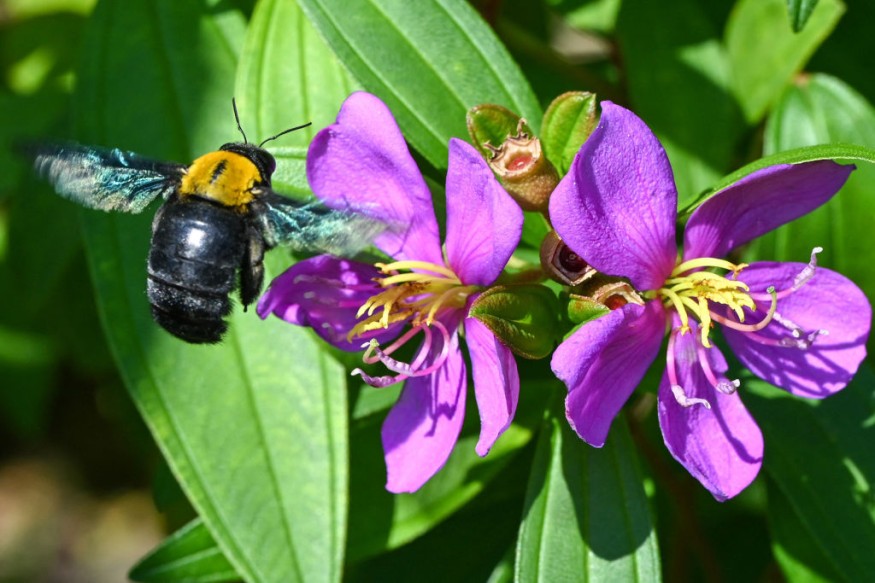
Scientists have discovered the origins of bees as far back as 120 million years ago, at the time of the former supercontinent Gondwana.
This discovery has led them to theorize that bees probably diverged from the former supercontinent earlier than previously thought.
Genealogy of Bees is Much Older by Millions of Years
A new study revealed that the origin of bees turns out to be tens of millions of years older than most earlier estimations.
The bee ancestry was tracked by a group of scientists led by Washington State University researchers back more than 120 million years to the former supercontinent Gondwana, which included the modern continents of Africa and South America.
Researchers discovered evidence that bees started sooner, diverged faster, and expanded farther than many scientists had previously hypothesized in a study that offers a new evolutionary history of bees.
There has been a long-standing mystery about the geographic origin of bees, according to Silas Bossert, a WSU Department of Entomology assistant professor.
Together with Brazilian associate professor Eduardo Almeida from the University of Sao Paulo, Bossert co-led the project.
Genes of 200 Bee Species Worldwide
The team of Bossert and Almeida sequenced and analyzed genes from more than 200 bee species while working with colleagues on every continent who helped with sampling and computer analysis.
185 distinct bee fossils and extinct species were compared with these attributes to create evolutionary histories and genealogical models for historic bee dispersal.
They examined hundreds to thousands of bee genes at a time to ensure that the associations they predicted were accurate in what may be the largest genomic study of bees to date, Science Daily reports
This is the first time that comprehensive genome-scale information on all seven bee groups is available, according to co-author and Washington State University assistant professor of entomology Elizabeth Murray.
Ancient Supercontinent Gondwana
According to earlier studies, the first bees probably descended from wasps and changed from being predators to gathering honey and pollen.
This study demonstrated that throughout the early Cretaceous, they evolved in arid areas of western Gondwana.
Bossert added that there is now statistical proof that bees were first domesticated on Gondwana. It is well recognized that bees are southern hemisphere insects at their core.
The researchers discovered proof that bees traveled north when the new continents emerged, diversifying and expanding in concert with angiosperms, the blooming plants. They then settled in Australia and India.
Before the beginning of the Tertiary period, 65 million years ago, when dinosaurs went extinct, all major bee groups appeared to have split off.
Also Read : Scientists Baffled After 500-Million-Year-Old Fossil in Indian Cave Turns Out to be a Beehive
Coevolution with Blooming Host Plants
The great diversity of the flora in the tropical areas of the western hemisphere may be a result of their long-standing interaction with bees, according to experts.
The huge and diversified rose family, which comprises 25% of all blooming plants, accounts for a sizable portion of the tropical along with temperate plants that serve as hosts for bees.
The goal of Bossert's team is to continue sequencing and researching the genetics and evolutionary history of additional species of bees.
Their findings serve as an important starting point for understanding how pollinators and blooming plants coevolved.
Another way to maintain a healthy pollinator population is to comprehend how bees colonized new areas and filled ecological gaps in the modern era.
According to Murray, more people are concerned about bee conservation and are working to preserve these species where they are. This research paves the path for other historical as well as ecological stage studies, Phys Org reported.
The research done by Bossert and his team was recently published in the Current Biology journal.
Related Article : This Weird New Bee Species From Australia Looks Like a Dog
© 2025 NatureWorldNews.com All rights reserved. Do not reproduce without permission.





